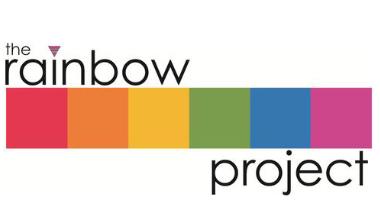Adoption & Fostering
Many LGBT people in Northern Ireland are not aware that they are able to foster, however, our ability to be considered as foster carers is underpinned by equality law. Despite the law, many LGBT people think that they can’t be carers or are concerned that agencies may not wish to work with LGBT foster carers. There are many fostering agencies who actively seek LGBT prospective carers as we are often seen as more accepting, understanding of challenges and able to see the positives in young people.
What is fostering?
Becoming a foster carer is a way of providing a family life to a child or children who are not currently able to live with their own parents. Foster carers are people who are able to offer children safe and secure homes where they feel valued and respected and their emotional, physical and social development is promoted. As a foster carer you will be investing your time and energy for the wellbeing of a child or young person.
There are a range of placements that foster carers are able to provide including:
- Emergency placement is when a child(ren) or young person has had to be accommodated by the Local Authority in a crisis situation to ensure their safety and well-being. Most carers will engage in an emergency placement due to the nature of how children are brought into care.
- A Respite placement is when a foster carer provides a short stay care for a child while their usual carer takes a short break; this would usually be for a weekend or a week long period. Sometimes a child can stay with a regular respite carer who they come familiar with.
- A Short stay placement is when a child requires support on a short term basis, they will be placed with a short term foster carer for a matter of days or months. This is usually an interim arrangement until the child or young person can return to their intended carers or until a suitable long term placement is made.
- Long term. Sometimes it can be months or years before a child can return to his or her intended carers. There are times when a child or young person is not able to return to their intended carers. In these cases a long term placement is needed to ensure their safety and well-being. Children in placements need foster carers who can provide safety and stability to children on a long term basis, while supporting their relationships with their intended family.
How do I become a foster carer?
Becoming a foster carer is a decision that requires careful consideration, so first of all it is important to do your research! It is also very important that if you are exploring becoming foster carer that you chose the right agency for you. Most foster agencies have their own websites and/or Facebook pages so it would be a good start to look at these.
Ask around, if you know any foster carers ask them about their experiences of good agencies around Northern Ireland. If you are LGBT, look into the agency’s reputation, values and policies in relation to LGBT issues. Make sure that you feel the agency is one that shares your values. When you contact a fostering agency they will usually do an informal assessment over the phone to discuss your eligibility and if they feel you meet the criteria, they will arrange a home visit with you where they will give you information about becoming a foster carer so you are able to make an informed decision about whether it is right for you and/or your family.
As part of the assessment, the agency will consider the following:
- Personal and employer references.
- Your ability to work with them as part of a professional team.
- Your health, background and lifestyle.
- Your ability to provide a caring and nurturing environment, including an assessment of your home.
- Your skills to care for a child(ren) or what skills you can bring to a child’s life.
- Your attitude and personality, including any experience of parenting or caring for children
The assessment can take anywhere from 3 months to 6 months. When your assessment is complete the assessor will usually share the assessment with you to ensure all of the information is accurate. They will then present this to a foster panel that will ratify you as a foster carer for the agency.
Myth busting
- You do not have to be heterosexual to be able to become a foster carer
- You can be male or female to become a foster carer.
- You do not have to be cisgender to become a foster carer
- You do not have to be in a relationship to become a foster carer, you can be single, cohabiting or married.
- You can be a tenant or a home owner to become a foster carer.
- The usual age to be eligible to become a foster carer is 21 years.
- Having a criminal record won’t necessarily disqualify someone from becoming a foster carer; however, applicants with an offence against a child or any violent crime are unlikely to be selected. It is very important that you are upfront and honest about any cautions, reprimands or convictions that may impact on your assessment.












